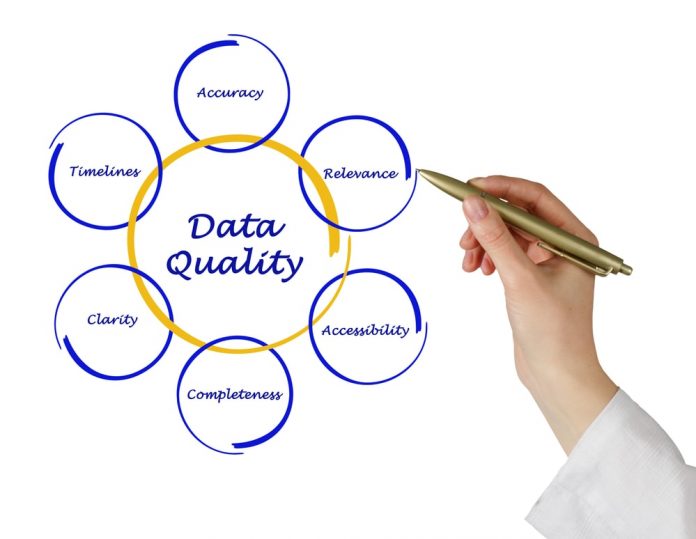By Mike Means
This year’s Black Friday revenue from online sales was $6.22 billion, a record-breaking amount for the annual retail holiday. In addition to online sales, 151 million people went to a mall or shopping center to make their purchases over the holiday weekend. As this year’s tremendous success demonstrates, the use of customer relationship management (CRM) databases played a major role in helping retailers effectively target shoppers and prompt them to visit their retail stores or websites to take advantage of significant savings.
When these large shopping holidays come around, such as Black Friday or Cyber Monday, it’s likely that your inbox, like mine, becomes inundated with emails from retailers about deals of the day and new products. Most of us receive these emails every single day without giving a thought to how effective they are at prompting us to take action. But the fact is, we’re more likely to visit the websites of companies that send us promotions than ones that don’t. With clear messaging about a sale or new product offering, combined with the convenience of a direct link to the offer or item, we’re also more likely to click through, potentially leading to a sale. And, regardless of whether or not we take action at that moment, these emails keep the brand top of mind for us.
Clearly, targeted campaign strategies and promotional emails are necessary. Without them, retailers would lose out on sales throughout the holiday season, which represents as much as 30 percent of annual sales, according to the National Retail Federation. And businesses of all types, sizes, and industries rely on campaigns to generate revenue and maximize business opportunities throughout the year. But what may not be as clear is how much the success of those efforts and the revenue that results is tied to the accuracy of the CRM and the elimination of bad data – which can be defined as data that is missing, wrong or incorrect, entered into the wrong field, non-conforming or duplicate.
To illustrate, consider a digital campaign designed to boost holiday sales. The validity of each email address in a CRM is critical to the success of that campaign. After all, for customers to be engaged and take action, they first have to be reached. Yet CRMs are often filled with inaccurate emails. Some inaccuracies are caused by poor data entry by consumers or company associates at the point of sale. Some are caused by the natural decay that occurs within email lists, which experts agree happens at the rate of approximately 25 percent per year.
The discovery of these inaccuracies often comes in visual form via email bounce backs. Bounce backs are a clear indication that an email address has changed or was entered incorrectly. While this feedback does provide insight into the accuracy of the emails in a company’s database, it doesn’t demonstrate how many email addresses are valid, but simply not checked regularly by consumers. And it doesn’t give database users an efficient way to take action to remove invalid emails or verify and remove invalid emails en masse.
In addition, inaccurate emails aren’t just problematic in keeping a company from reaching its intended audience. A substantial number of bounced emails can also result in a domain or IP address being listed on a spam or a blacklist report, which impacts all email communications and the company’s reputation. These simple missteps can mean the difference between a holiday campaign generating hundreds of thousands of dollars, and one barely reaching your target audience and creating engagement.
All of these factors make a strong investment in data quality solutions, such as data cleansing and email verification solutions, key to maintaining a competitive advantage.
Using a proven email verification solution can help you reach your target audience, boost sales, engage customers and protect your sender reputation. And using data cleansing tools that standardize data fields, help you merge and update records and remove duplicates from the database, can keep all the data in your CRM optimized.
This doesn’t just support your ability to deliver promotional campaigns and generate revenue. The value of having high quality data in your CRM cannot be understated as a tool for effectively engaging customers, providing exceptional customer service, and building strong customer relationships.
Even the best products need to come with great customers experiences or you won’t create brand loyalty. An accurate and robust CRM database will help you deliver great customer experiences. You can leverage the information it contains, such as an up-to-date product purchase history, to get to know the kinds of products your customer base is interested in and what pain points they’re trying to solve, helping you pinpoint products that will have the most appeal. And with details about customers collected and added to your CRM over time, you not only build a lasting relationship, but you make it so anyone from your company who comes in contact with them can make the customer feel like they “know” them.
There’s still time this holiday season to ensure your CRM is in its best shape while customers continue to make their purchases online. The choices you make today can help you finish the year strong. And it’s certainly not too late to prepare for next year’s sales and a successful 2019 holiday season by starting the year with CRM data that’s more refined and actionable.
Mike Means is the Vice President of Strategic Partnerships at Validity, a global leader in data quality with leading offerings such as BriteVerify for email verification. He has advanced knowledge of email deliverability and email acquisition through forms and POS systems with 17 years of conference experience focused on capturing qualified leads.
Data stock photo by arka38/Shutterstock







